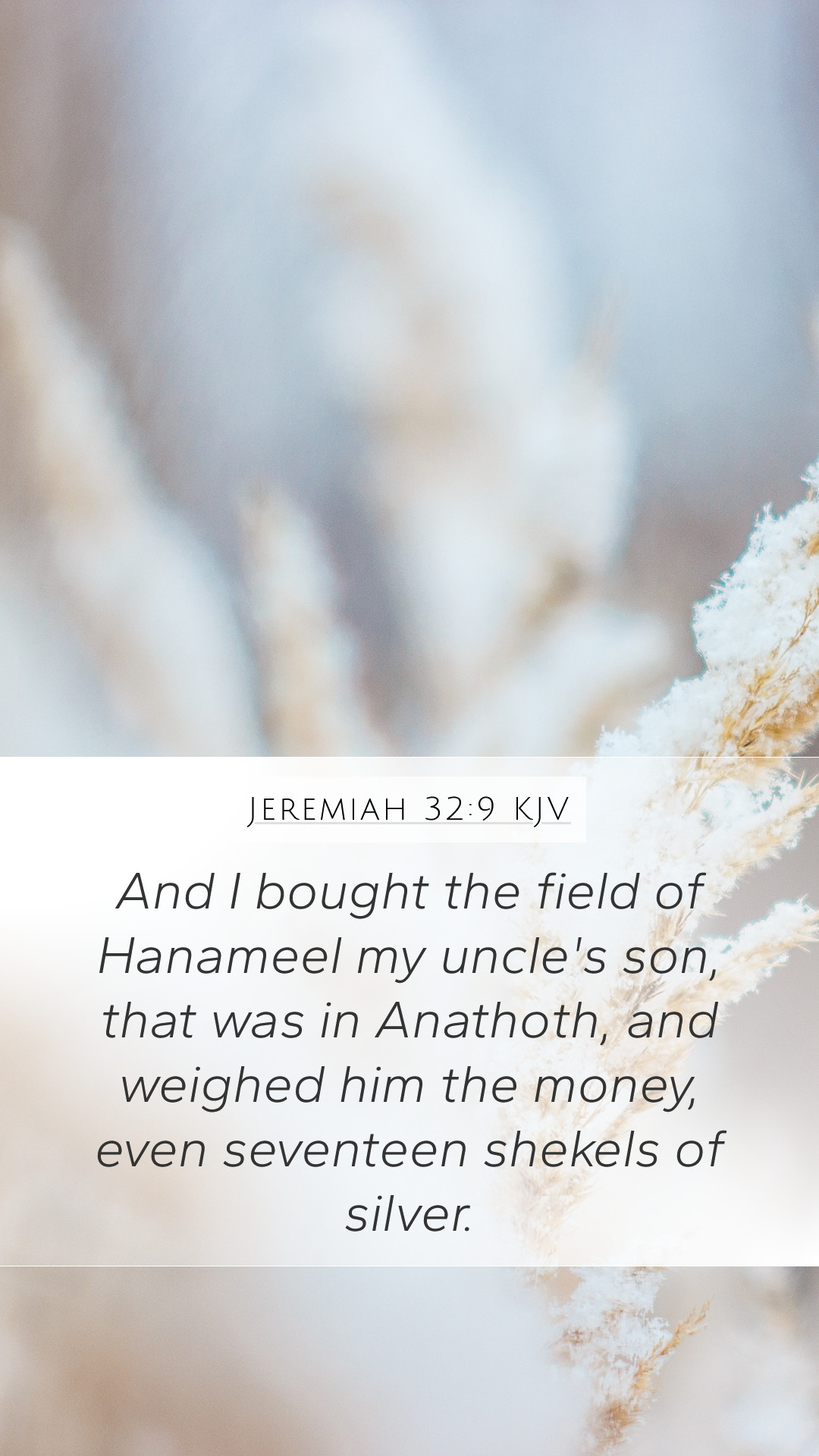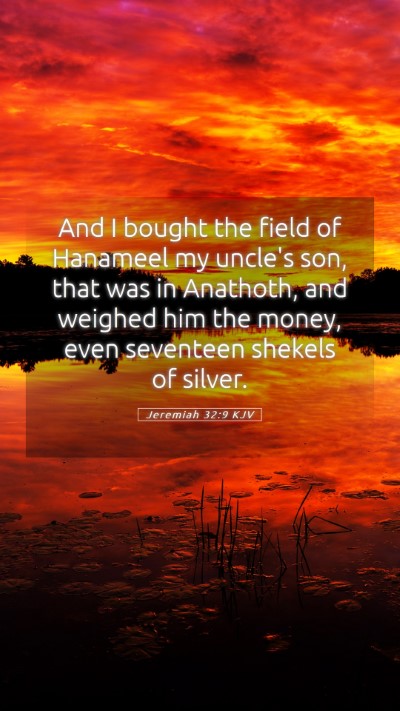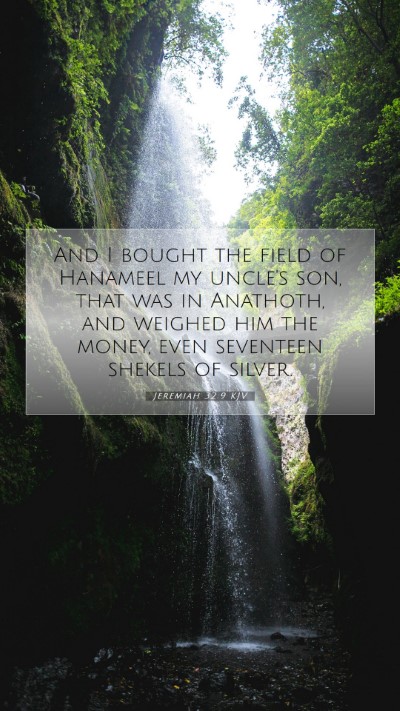Understanding Jeremiah 32:9
Jeremiah 32:9 states: "And I bought the field of Hanameel my uncle's son, that was in Anathoth, and weighed him the money, even seventeen shekels of silver." This verse encapsulates a significant moment in the life of the prophet Jeremiah, where he demonstrates obedience to God amidst challenging circumstances. The act of buying a field is not just a mere transaction; it carries profound prophetic symbolism and spiritual implications.
Bible Verse Meanings
This verse highlights Jeremiah’s faith and trust in God's promises during a time of impending doom for Jerusalem. Despite the siege and the approaching Babylonian conquest, Jeremiah takes a step that signifies hope and assurance in God's future restoration of Israel. The acquisition of land is vital to understanding God’s covenant with His people.
Bible Verse Interpretations
Commentators like Matthew Henry suggest that purchasing the field symbolizes believing in God’s promises regarding the land, emphasizing the importance of the earthly inheritance tied to divine promises. Albert Barnes elaborates on the financial aspect, interpreting the weighing of silver as a deliberate act confirming the reality of impending judgment while also asserting faith in the ultimate redemption. Adam Clarke provides insight into the cultural significance of land ownership in Israel, portraying this act as an essential declaration of hope for future generations.
Bible Verse Understanding
This verse can be understood as a testament to faith under pressure. Jeremiah's act of purchasing land serves to reinforce the belief that despite current circumstances, God's plans for restoration will come to fruition. It serves as a reminder of the importance of holding onto faith even when the evidence seems contrary, echoing the themes of hope and divine promise prevalent throughout the scriptures.
Bible Verse Explanations
The explanation of Jeremiah 32:9 lies in its rich historical context. Jeremiah performed this act as a living parable, signifying that possession and legacy go beyond the present crisis. The value of the field symbolizes the commitment to God's promises, ensuring that the people of Israel would have a future in the land He promised them. This act serves as a prophetic declaration that mirrors the key theme of salvation and restoration seen throughout the Old Testament.
Bible Verse Commentary
In biblical commentary, Jeremiah's purchase is often discussed in light of its prophetic significance. Henry mentions it as an act of faith, while Barnes highlights the practical execution of God's directive. Their commentaries emphasize that such actions reflect a deep trust in God's sovereignty, further reinforcing the theological implications surrounding the verse's message.
Scripture Analysis
An analysis of this scripture necessitates an understanding of the broader chapters surrounding it. This particular verse serves as both a personal and communal declaration of faith that perseveres despite the turmoil surrounding Jeremiah’s ministry. It encourages believers today to reflect on their own faith in times of adversity.
Biblical Exegesis
The exegesis of Jeremiah 32:9 shows the layers of meaning involved in the transaction of land. This act goes beyond the physical realm, indicating spiritual ownership and the fulfillment of God’s promise to restore His people. It challenges readers to consider what it means to invest in God's purpose amidst tribulation.
Bible Study Insights
- Understanding the historical implications of land ownership in Israel.
- Analyzing the significance of faith and obedience in the face of adversity.
- Exploring the prophetic dimensions of Jeremiah’s actions.
Cross References
- Jeremiah 29:4-7 - God's message to the exiles about their future.
- Ezekiel 36:24-28 - Promises of restoration for Israel.
- Deuteronomy 30:18-20 - God's call to choose life and return to Him.
Application of Jeremiah 32:9
This verse challenges modern believers to reflect on how they can embody faith in their actions, particularly during trials. The act of purchasing the field can serve as a metaphor for investing in God’s promises and keeping hope alive through practical steps of faith, which remains relevant for today’s Christian community.


